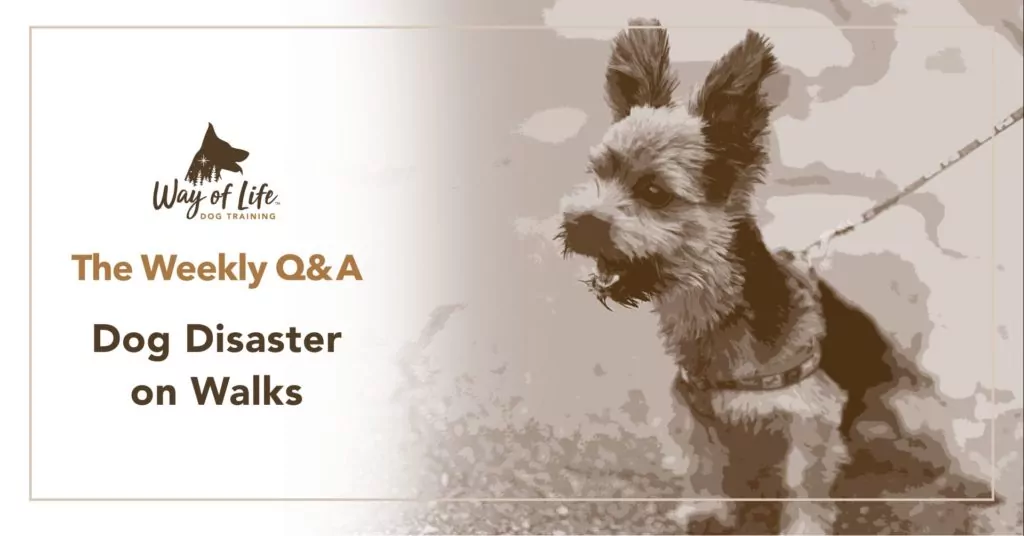
Q: I’m hoping to have private sessions with a trainer to help train my dog on a leash to focus and listen to commands. He’s an 8-month-old Lab/shepherd currently going through an adolescent phase. Walking him is always a complete disaster for me because he pulls, darts after birds, lays down, is distracted by other dogs, and eats anything on the ground. Please let me know how your service works and any details when you can!
A: While I very much empathize with the challenges you’ve been facing, I couldn’t help but smile at the sense of humor coming through in your message. Good for you! I assure you that having a sense of humor about dogs, their behaviors, and misbehaviors, can make all the difference.
Let’s talk about the adolescent stage first. For sure, there are biological and physiological changes happening in dogs during this time, creating new and interesting, if not outright challenging, behaviors. Dogs are transitioning from childhood to adulthood. At times, they surprise us with bouts of maturity and poise. In other instances, they remind of how infantile they still are. There will be a back and forth between these states before they settle in their adult identity.
But what I’ve also found is that difficulties in adolescence tell us about how well we did things in puppyhood. I don’t know whether you’ve raised your teen dog since childhood but regardless, one of the most fundamental things we do in the Way of Life Method is reset things and go back to our foundations. The issues you describe – pulling, chasing, vacuuming things off the ground – all speak to the need to return to these foundations.
Yet the mainstream approach to training would deal with issues at the surface level. I would not be surprised if most trainers would want to help you improve your dog’s leash skills so he doesn’t pull and work on his focus so that he doesn’t dart, vacuum things off the ground, and pay attention to everything but you.
This is all well and good but ignores the aspects of our way of life that are causing this behavior. I know without a doubt that issues shown outside the home speak to how things are being done inside the home.
We overlook the need to manage and regulate our dogs inside but then are frustrated when the dogs are not responsive to being directed outside. If dogs are not regulated indoors, how are they supposed to accept being regulated outdoors? Where there is much more going on that is interesting and stimulating?
Rest at ease, the dog might be a disaster on walks now, but it won’t be that way forever. When you make changes to your way of life, going beyond simply changing the behaviors that the dog is manifesting, you will create real change from the inside out.